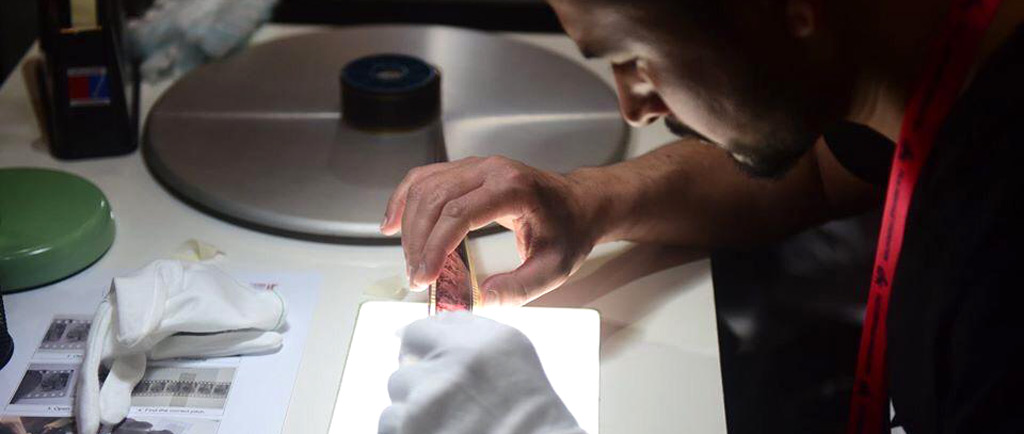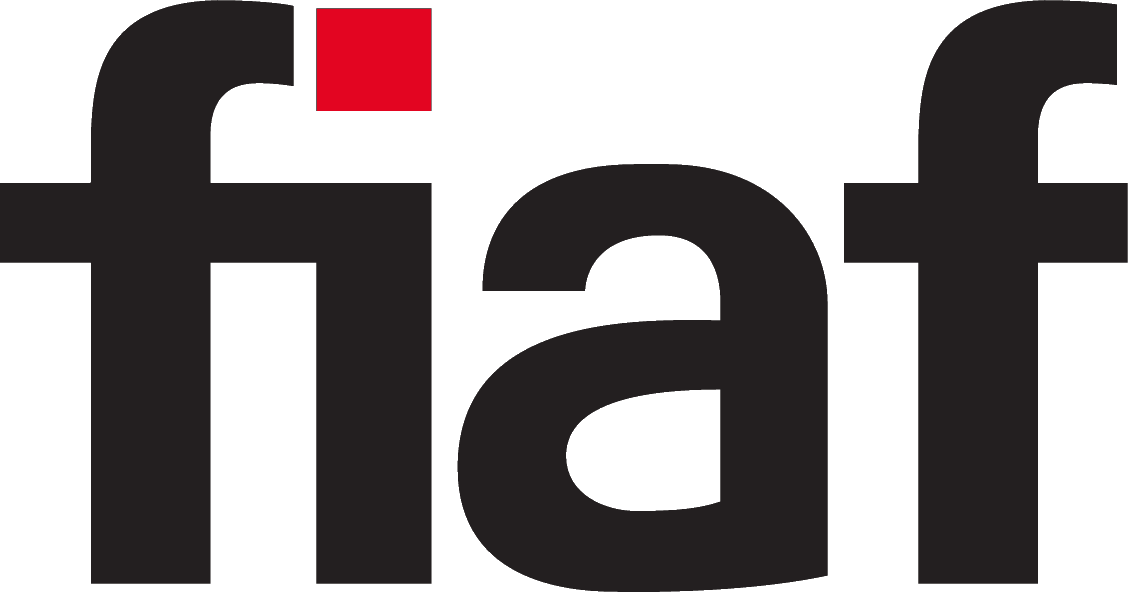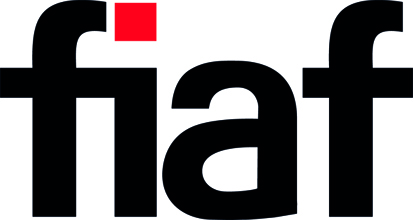 Mr. Hashimi at the 2019 edition of the Film Preservation & Restoration Workshop India in Hyderabad.
Mr. Hashimi at the 2019 edition of the Film Preservation & Restoration Workshop India in Hyderabad.
Afghan film archivists at risk under Taliban rule brought to safety in Germany
Geneva, Brussels, Berlin, 15 February 2024
A massive effort coordinated by Artistic Freedom Initiative (AFI), the International Federation of Film Archives (FIAF), the Stiftung Deutsche Kinemathek (SDK) and Arsenal - Institute for Film and Video Art in Berlin has brought Afghan film archivists at risk under Taliban rule to safety in Germany.
Since the Taliban regime took control of Afghanistan in 2021, those working in archives, museums, cultural heritage sites, film and television, music, visual arts, performing arts, literature and arts education have faced the threats of persecution. Punishments have been meted out including extrajudicial killings, arrests, arbitrary detention and public humiliation while arts and cultural institutions, including museums and archives, have been either nearly or completely shut down.
When AFI was informed about the cases of three film archivists and their families who were under threat in July 2022, it worked with FIAF, SDK and Arsenal - Institute for Film and Video Art as well as individual supporters to request help from the German government in safely relocating the group to Germany. Over a 15-month process, the archivists, together with their family members, were granted humanitarian visas by the German Government in September 2022.
“This success was due to the ongoing cooperation of the many supporters,” says AFI attorney Michael Mai, who played a central role in coordinating the resettlement. “It was a complex and difficult process but throughout it all no-one gave up.”
The evacuation was further disrupted by changes to entry and exit regulations in Pakistan, where the archivists initially fled from Afghanistan, as well as the temporary suspension of visa processing by Germany and the risk of deportation back to their home country. The three families are now safely resettled in Berlin. Mr Hashimi was granted a scholarship from the Martin Roth Initiative of the Federal Foreign Office as well as a grant from FIAF to participate in a training workshop in Stockholm. Another of the archivists, who wishes to remain anonymous, will begin working at the Stiftung Deutsche Kinemathek shortly with a scholarship from the Gerda Henkel Foundation.
“FIAF will continue to support these three Afghan colleagues in any way it can, and will strongly encourage its 173 affiliated film archives around the world to do so too,” says FIAF President Peter Bagrov. “It will also keep monitoring the situation of other film archivists still potentially at risk in Afghanistan.”
This success story is also a step toward the international legal obligation to protect Afghan cultural rights and safeguard the cultural heritage of the Afghan people, at risk of obliteration under the Taliban. Afghan film is an integral part of the country’s culture and identity, the preservation of which is now more critical than ever, and the archiving work and knowledge is passed down through generations in families. It is important to note that many of the preserved films that the archivists restored include scenes and images that are against the Taliban’s interpretation of Islam, such as the depiction of women with their faces uncovered and the use of musical scores. The regime destroyed much of the historical archives, and there are fears for those that remain.
“The main goal of the film archive at the Afghan presidential palace was to collect visual content such as fiction movies, documentaries and newsreels - preserving those national documents is really important because they are the historical identity of our country,” says Mr Lutfi. “That’s why I tried to do my best to keep the archive alive and safe under very difficult circumstances. After August 15, 2021 [when the Taliban took control again] it was really difficult to fight for the archive and art at all; I was really afraid of the unclear situation in Afghanistan, because we had experienced the brutal behaviour of the Taliban against film archives before.”
Mr Hashimi says fleeing Afghanistan when the Taliban came back into power and living in Pakistan and Iran along the way was extremely difficult as his family was still in Afghanistan.
“We were in a very bad economic and psychological state until I was transferred to Germany and later my family was also transferred here. Currently, we have started a new life in the city of Berlin. My eldest child is going to school and I am learning German and have a part-time job helping children who have recently arrived and are seeking asylum in Germany. I have the desire to return to the group of protectors of the world's cinematic heritage.”
In other countries, international immigration and resettlement assistance has been extremely limited but Germany created a special pathway for artists and creative workers to seek humanitarian admission into the country. The country approved humanitarian visa applications for more than 37,000 Afghans from August 2021 to October 2022, and it continues to offer a pathway for artists to enter the country though the Federal admission programme for Afghanistan.
To date, AFI has provided legal and resettlement assistance to more than 1,100 Afghan people working in the arts along with their family members since the beginning of the Taliban takeover and has communicated with hundreds of others in distress as they struggle for personal and professional survival. Its 2023 report Artistic Exodus: Afghan Artists Fleeing Taliban Rule tells the stories of some of these visual artists, musicians, filmmakers, archeologists and curators to highlight the real life impacts of the political crisis in Afghanistan and subsequent forced migration.
For more information, please contact c.dupin@fiafnet.org or media@artisticfreedominitiative.org.









